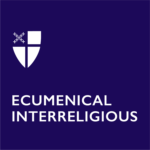Full Communion Partners
The 1958 Lambeth Conference recommended “that where between two Churches not of the same denominational or confessional family, there is unrestricted communio in sacris, including mutual recognition and acceptance of ministries, the appropriate term to use is ‘full communion,’ and that where varying degrees of relation other than ‘full communion’ are established by agreement between two such churches the appropriate term is ‘intercommunion.’
Communion in the Church and communion between and among the churches is a dynamic reality, a reality in progress, a reality never perfectly achieved, a reality with which we struggle as we struggle in our personal communion with God and with one another.
We understand full communion to be a relation between distinct churches in which each recognizes the other as a catholic and apostolic church holding the essentials of the Christian faith. Within this new relation, churches become interdependent while remaining autonomous…Diversity is preserved, but this diversity is not static. Neither church seeks to remake the other in its own image, but each is open to the gifts of the other as it seeks to be faithful to Christ and his mission. They are together committed to a visible unity in the church’s mission to proclaim the Word and administer the Sacraments.
Meaning of Full Communion
Full communion was first reached by provinces of the Anglican Communion with the Old Catholic Churches on the basis of the Bonn Agreement of 1931:
– Each Communion recognizes the catholicity and independence of the other and maintains its own;
– Each Communion agrees to admit members of the other Communion to participate in the Sacraments;
– Intercommunion does not require from either Communion the acceptance of all doctrinal opinion, sacramental devotion, or liturgical practice characteristic of the other but implies that each believes the other to hold all the essentials of the Christian faith.

